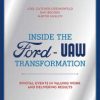(Ebook PDF) Re membering Kenya Vol 1 Identity Culture and Freedom 1st Edition by Wa Mungai Mbugua, George Gona ISBN 9789966028204 996602820X full chapters
$50.00 Original price was: $50.00.$35.00Current price is: $35.00.
Re membering Kenya Vol 1 Identity Culture and Freedom 1st Edition Wa-Mungai Mbugua Digital Instant Download
Author(s): wa-Mungai Mbugua; George Gona
ISBN(s): 9789966028204, 996602820X
Edition: 1
File Details: PDF, 6.72 MB
Year: 2010
Language: english
(Ebook PDF) Re membering Kenya Vol 1 Identity Culture and Freedom 1st Edition by Wa Mungai Mbugua, George Gona-Ebook PDF Instant Download/Delivery:9789966028204, 996602820X
Instant download Full Chapter of Re membering Kenya Vol 1 Identity Culture and Freedom 1st Edition after payment

Product details:
ISBN 10:996602820X
ISBN 13:9789966028204
Author: Wa Mungai Mbugua, George Gona
One of the critical questions that Kenyans have continuously asked is what went wrong in January and February 2008 with the �peace� they had hitherto enjoyed. There have not been readily available answers to this fundamental question. The collection of papers presented in this book attempt to provide, as a starting point, possible explanations for the events of early 2008 including key background issues in Kenyan history since pre-independence times. Based on a series of public lectures titled (Re)membering Kenya organized by the volume editors together with Twaweza Communications and sponsored by the Goethe-Institut Kenya, the Institute for International Education and The Ford Foundation the lecture series became a way of trying to get scholars to engage meaningfully with the Kenyan public on critical matters pertaining to their nationhood�even if this entailed first calling to question the �lie� about the very ideas and practices upon which that nationhood is assumed to stand. A key lesson drawn from the unfolding discussions at the Goethe-Institut Kenya was that the 2007 elections� debacle was merely the cusp of momentous crises to do with among other issues, governance, law and order, Parliament�s abdication of its role in ensuring accountability from the Executive, dilemmas of identity and socio-economic marginality. The book is the first of three volumes under the (Re)membering Kenya series whose overall objective is to cast some new light on the various trajectories that informed the happenings of January 2008. The present volume brings together some of the best interpretative writing and suggestions on pertinent questions, past and present, ranging from the architecture of Kenya�s ethnicity, Kenyanness, generational competition, socialization and violence, iconic representations of identity to the ongoing debate on the efficacy of the Truth, Justice and Reconciliation Commission (TJRC). It is hoped that the issues debated during the public lectures and documented herein will spur further discussions in other spaces within civil society organizations, among activists and in newspapers where the public might continue to expand their thinking on the complex task of (Re)membering Kenya.
Table of Contents:
- Introduction
- Prescript – Blessings of Bullets: A Survivor’s Personal Experience
- Identity
- Historicizing Negative Ethinicity in Kenya
- The Genesis of ‘Tribe’ and Ethnicity
- Ethnicity in pre-colonial Kenya
- The impact of colonialism on ethnicity
- Independent Kenya and ‘Nation-Building’?
- Conclusion
- Notes
- References
- Negotiating ‘Kenyanness’: The ‘Debates’
- ‘Kenyanness’: a tenuous concept?
- Living the Lie: Kenyan nationhood or ethnihood?
- ‘Kenyanness’: History and memory reconsidered
- Gleaning through the ‘Kenyan’ pre-colonial historical record
- ‘Kenyanness’ as a nationalist project: the colonial period
- ‘Kenyanness’ and the national community: the independent state
- Conclusion
- Notes
- References
- Iconic Representations of Identities in Kenyan Cultures
- Introduction: From K’Osewe’ to Rurıng’u Stadium
- Towards a theorisation of iconicity
- Patriarchs, populists and radicals: Political models
- Gender(ed) icons
- Popular culture icons: Alternative states
- Post-script: Surviving Serena
- Notes
- References
- Gerontocracy and Generational Competition in Kenya Today
- ‘Old is gold’ and wisdom
- On the postcolonial power transitions and the age question
- Kill me quick: subsisting in a state of permanent despair
- The ‘last’ word
- Notes
- References
- Culture
- Socialization and Violence: Ideas and Practices in Kenya
- The lingual-cultural factor in violence
- Defining lingual-cultural violence
- How lingual-cultural factors promote violence
- The settings of hurtful and harmful language
- The negative power of ideas and practices
- Reflections and Suggestions
- Notes
- References
- Gendered Identities: Women and Power(lessness) in Kenya
- Theorizing women’s issues
- Problematizing power: Maendeleo ya Wanawake and beyond
- Narrating socio-political experiences
- Conclusion
- Notes
- References
- Freedom
- Cross-media Ownership and Monopolizing of Public Spaces in Kenya
- Kenyan media: A brief history
- Media in colonial Kenya
- Media in Independent Kenya
- Media, multipartism, globalization, liberalization & cross-media ownership
- Critique of the role of the media
- Cross-media ownership. An attempt at definition
- Cross-media ownership in Kenya
- The Nation Media Group (NMG)
- The East African Standard (EAS)
- The Royal Media Services
- Kiss FM, Classic FM, Radio Jambo, East FM and The Star
- Kenya Broadcasting Corporation (KBC)
- Monopoly in the media and in the political economy
- Political pluralism, media explosion and control
- Cross-Media ownership and democracy
- Curbing cross-media ownership
- Media regulation
- Conclusion
- Notes
- References
- The Politics of Media Culture and Media Culture Politics
- Defining media culture, freedom and regulation
- Theoretical premise for understanding culture
- Culture in context
- The Sudan Example
- Transgressing media culture
- Conclusion
- Notes
- References
- Globalized Identity: Diaspora Kenyans and Local Conflict
- On being labelled
- On globalized identity
- The nature of diaspora Kenyans
- Post-election violence and involvement of Kenyans in the diaspora
- Urging national dialogue and international support
- Rationalizing the violence and urging partition of Kenya into ethnic enclaves
- Conclusion
- Notes
- References
- Intellectuals and the State: A Historical Perspective
- Imhotep
- K’ung-fu-Tzu and Master M’eng-Tzu
- Socrates and Kautilya
- Thomas Hobbes
- Karl Marx
- African intellectuals
- The new role
- Conclusion
- Notes
- Conflict and Reconciliation
- The South African Truth and Reconciliation Commission: Lessons for Kenya
- How did the South African TRC work?
- The South African TRC: a brief evaluation
- Why reconcile Kenyans?
- Truth and Reconciliation—Lessons for Kenya
- Dangers of heightened expectations
- Reliving the past and “closure”
- TRC and social justice
- Women and the TRC process
- Bringing people to testify
- Conclusion
- Notes
- References
- Post-Script – Truth and Reconciliation: A Reflection
People also search:
kenya refugee act
kenya rebellion
re keen 1937
kenya re
kenya refugee act 2021
Tags:
Wa Mungai Mbugua,George Gona,Kenya,Identity,Culture,Freedom


